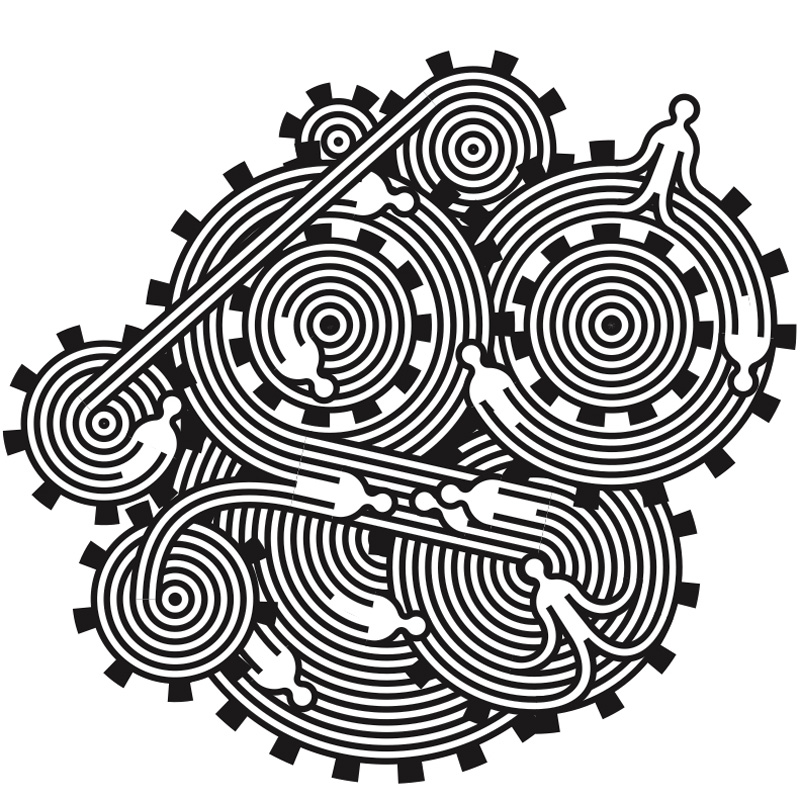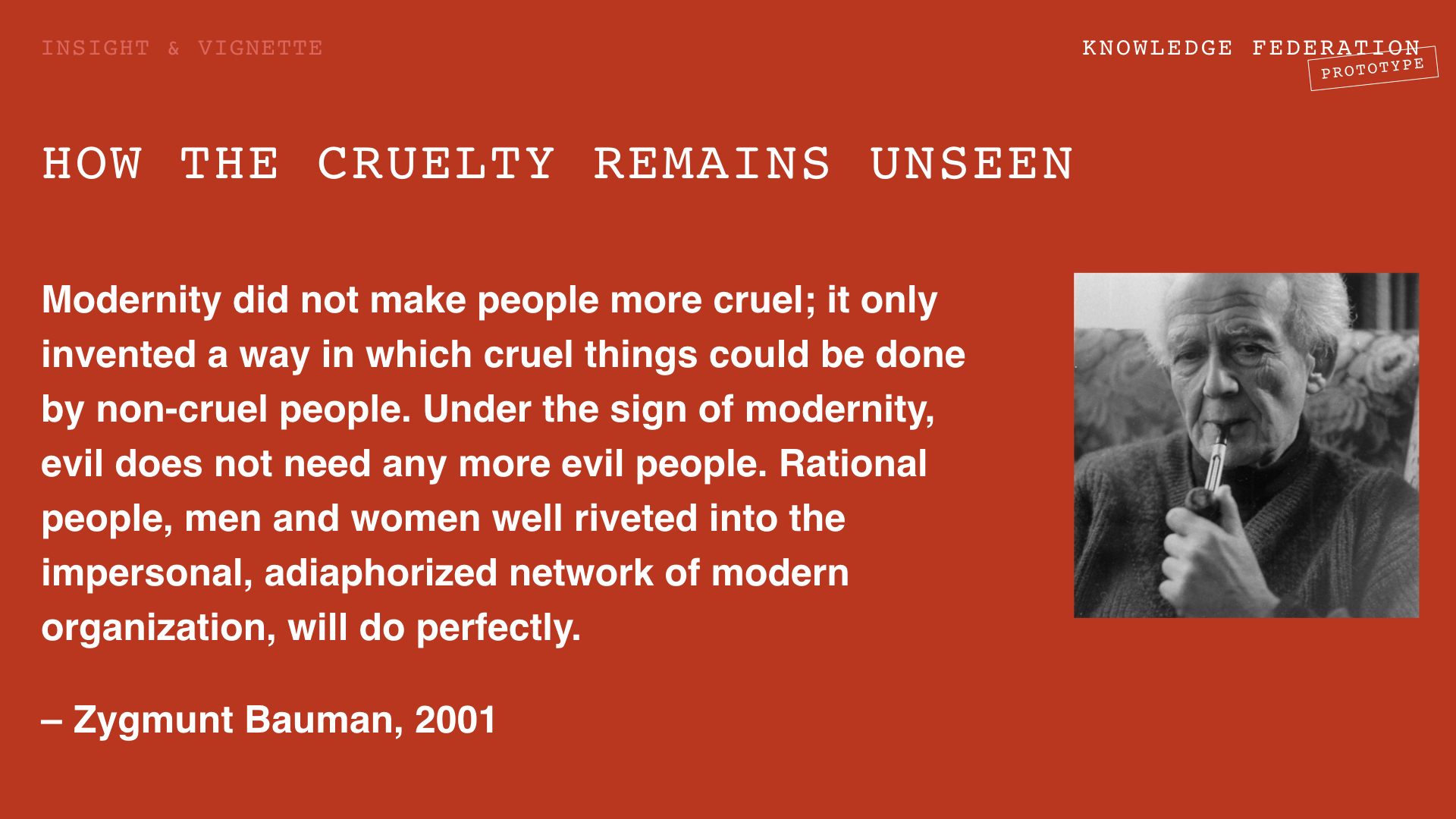Holotopia: Power Structure insight
Holotopia: The Power Structure insight
Scope
By developing the technology, our ancestors vastly augmented the effectiveness and efficiency of human work. Could a similar advent be in store for us today?
We look at what remained ignored: the "systems in which we live and work" (which we'll here call simply systems). Think of those systems as gigantic mechanisms, comprising people and technology. Their purpose is to take everyone's daily work as input, and turn it into socially useful effects.
If in spite the technology we are still as busy as were—should we not see if our systems might be wasting our time?
And if the effect of our best efforts turns out to be problems rather than solutions—should we not check whether those systems might be causing us problems?
Insight
Our systems tend to be conceived without any rational or conscious plan whatsoever.
The systems tend to evolve as 'cancer'.
We contemplated paraphrasing Bill Clinton's 1992 successful presidential campaign slogan, "The economy, stupid!", and calling this insight "The systems, stupid!". "The economy" (i.e. the economic growth) is not the solution to our problems—the economy is our problem... "The systems, stupid!" points to a winning political agenda in an informed society. Its consequences will be sweeping.
Stories
The Ferguson–McCandless–Fuller thread.
See a very brief version here (where Ferguson was not mentioned), and a bit longer persion on pages 4 and 5 here.
Zygmunt Bauman
Bauman used a strong metaphor, the concentration camp...
Norbert Wiener
The first axiom of cybernetics is that structure drives behavior. And that to be viable or "sustainable", a system must have some minimal requisite structure, notably a functioning feedback-and-control (...). In his 1948 Cybernetcs Wiener explained why we did not have that. And why the "free competition" would not replace it. But also Wiener failed to notice and unravel the Wiener's paradox!
Erich Jantsch
Jantsch contributed two further insights: That the "control" required for the humanity's continued existence (the solution of the "problematique") had to involve the capability to continuously update "the systems in which we live and work"; and that the key task of implementing that function would have to be done by the university institution. Jantsch coined the concept "systemic innovation", and undertook to bootstrap the corresponding theory, and practice. Hence we chose him to be the icon of power structure insight.
Action
Systemic innovation—making the systems whole
- Back to Holotopia


